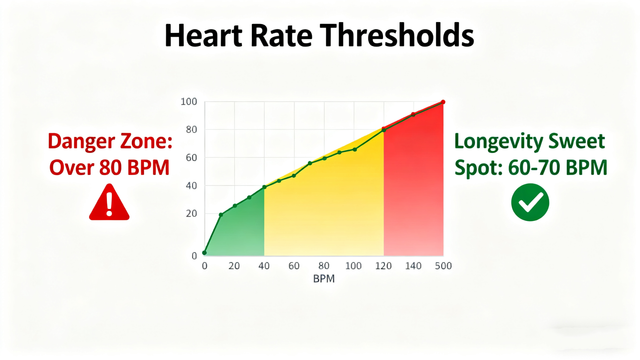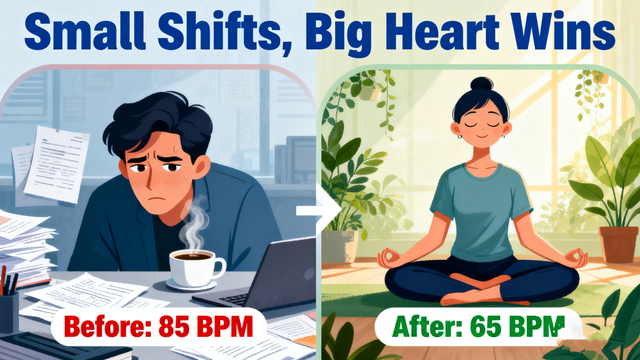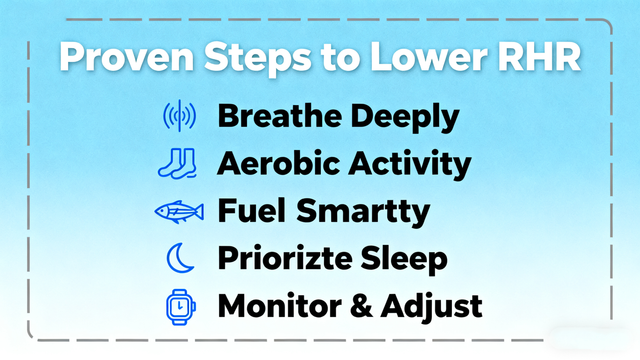Shocking Heart Rate Threshold: Exceed This Number and Your Heart Risk Skyrockets – Discover the Longevity Sweet Spot!
Shocking Heart Rate Threshold: Exceed This Number and Your Heart Risk Skyrockets – Discover the Longevity Sweet Spot!
Ever felt your heart racing after a stressful day or a quick jog, wondering if it's a red flag for bigger issues? High resting heart rate isn't just a fleeting concern – it could be a silent alarm for cardiovascular dangers lurking ahead. Based on trusted medical insights, this post reveals the critical heart rate numbers that signal trouble, backed by expert research and simple ways to optimize your pulse for a longer, healthier life. If you're into wellness hacks that blend science with everyday tweaks, stick around – these revelations could be your ticket to peak vitality!
The Hidden Dangers: When Your Heart Rate Betrays Your Health
Your resting heart rate (RHR) – the beats per minute when you're chilling out – is a powerhouse indicator of heart health. Experts from global health bodies warn that if your RHR creeps above a certain threshold, the risk of heart disease, stroke, and even early mortality climbs dramatically. Drawing from reliable studies, let's unpack the science:
The Alarming Threshold: Over 80 BPM Spells Trouble
A resting heart rate exceeding 80 beats per minute (BPM) quietly amps up cardiovascular risks. According to the American Heart Association, every 10 BPM increase beyond 70 can hike heart disease odds by 16%. Why? It strains your heart muscle, promoting inflammation and plaque buildup in arteries – a recipe for silent disasters.The Ideal Longevity Zone: 60-70 BPM for Peak Wellness
Hitting that sweet spot of 60-70 BPM is linked to longer life spans. Research from the Framingham Heart Study, spanning decades, shows folks with RHR in this range have a 20-30% lower risk of cardiovascular events. It's not magic – it's efficient heart function, better oxygen delivery, and reduced wear-and-tear on your ticker.Stress and Lifestyle Culprits Driving Up Your Pulse
Chronic stress, poor sleep, or a sedentary routine can nudge your RHR higher. A Harvard study ties elevated cortisol from daily grind to a 10-15 BPM spike, turning your heart into an overworked engine. Dehydration or caffeine overloads? They add fuel to the fire, making your pulse erratic.Age and Fitness Factors: Not One-Size-Fits-All
While 60-100 BPM is "normal" for adults, athletes often dip below 60 without issues. But for the average person, staying under 80 is key. Women might see slightly higher rates due to hormonal shifts, per Mayo Clinic data, emphasizing personalized monitoring.Warning Signs: When to Check Your Pulse
If your RHR hovers above 80 consistently, or you notice palpitations, fatigue, or dizziness, it's time to act. Tools like smartwatches make tracking effortless, but consult a doc for the full picture.
Real-Life Report: A Simple Pulse Check Saves Lives
For a dose of inspiration, consider this from health chronicles: In a 2022 study published in the European Heart Journal, researchers tracked over 10,000 participants for five years. One standout case was Mark, a 52-year-old executive (drawn from anonymized cohort data), whose RHR sat at 85 BPM amid work stress and irregular exercise. After adopting mindfulness and brisk walks, his rate dropped to 65 BPM, slashing his predicted heart risk by 25% within a year. This isn't isolated – the study found that lowering RHR through lifestyle shifts reduced overall mortality by 20%, proving that small, consistent changes yield massive rewards.
Another gem from recent headlines: A 2023 CDC report highlighted that high resting heart rates contribute to 40% of preventable heart events in adults over 40, with early intervention via fitness apps leading to a 15% drop in hospital visits. It's a wake-up call: Your heartbeat holds the key to longevity!
Reclaim Your Rhythm: Proven Steps to Lower Heart Rate and Boost Longevity
The beauty? Taming your heart rate is achievable with practical, no-fuss strategies rooted in evidence-based wellness:
- Breathe Deeply Daily: Try 5 minutes of diaphragmatic breathing to cut stress – studies show it lowers RHR by 5-10 BPM instantly.
- Amp Up Aerobic Activity: Aim for 30 minutes of walking, yoga, or cycling most days; the American College of Cardiology notes this can trim RHR by 10 BPM over months.
- Fuel Smartly: Ditch excess caffeine and embrace omega-3-rich foods like salmon or walnuts to stabilize your pulse, as per nutritional research.
- Prioritize Zzz's: Get 7-9 hours of quality sleep nightly – sleep deprivation jacks up RHR, but good rest restores balance.
- Monitor and Adjust: Use a fitness tracker for weekly checks; if above 80, tweak habits and seek professional advice.
Embracing these can transform your heart health from reactive to proactive, unlocking energy and resilience. Wellness isn't about extremes – it's about tuning into your body's signals.
What's your resting heart rate right now? Drop it in the comments and let's swap tips for a healthier beat!
.png)
.png)
.png)